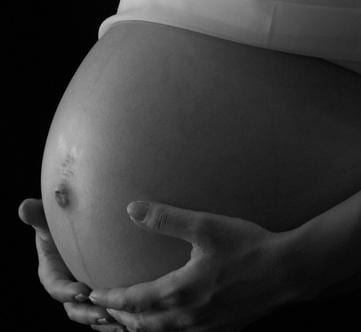Finding out you are pregnant can be exciting. You begin daydreaming about nurseries, baby names and stuffed animals. You will be seeing a doctor on a regular basis throughout the pregnancy, but if you also happen to be a diabetic, your diet will become especially important during the gestational months.
Features
Gestational diabetes places the expectant mother in the higher risk pregnancy category. This means she will be more closely followed medically and that she will have to follow some specific dietary guidelines to try and maintain a proper blood sugar level during her pregnancy. Whether she has diabetes before becoming pregnant or develops diabetes after conception, what she eats will play an important role in controlling her blood sugar.
Considerations
During the last two trimesters of pregnancy, doctors recommend a 300-a-day calorie increase for women who are expecting and have diabetes. For example, a woman who was eating 2,000 calories a day before conception needs to eat 2,300 calories a day, beginning at about week 15 and continuing throughout the remainder of the pregnancy, according to Revolution Health’s website. In addition, the need for protein increases with pregnancy and diabetes. Foods high in protein but not high in fat are the best choices for a pregnant diabetic, according to Revolution Health.
Function
The purpose of a carefully monitored diet for pregnant women is to maintain the healthiest blood sugar levels possible. Expectant mothers who are diabetic are encouraged to eat foods low in refined sugars. In addition, foods with high levels of natural sugars are also foods to avoid. Forms of sugar to avoid include honey, corn syrup, granulated sugar, maple syrup and brown sugar. When deciding whether to purchase or eat a type of food, women can check the list of ingredients. By federal law, ingredients are listed from largest to smallest percentage included in the food.
Size
Approximately 40 percent of daily calories need to come from carbohydrate foods. If diabetic pregnant women do not ingest enough carbs, their blood sugar can drop too low. Eating too many carbohydrates can cause unhealthy spikes in blood sugar. Other measures to maintain blood sugar at healthy levels include eating breakfast within 10 hours of the night snack and making sure the snacks eaten have fewer carbohydrates than the meals contain. As long as the expectant mother has healthy kidney function, she should consume 25 percent of her calories each day through protein foods. Lean proteins, including fish, low-fat dairy and low-fat meats, are all recommended choices.
Warnings
Pregnant diabetic women should not eat foods containing artificial sweeteners, according to “Diabetic Gourmet Magazine.” As of 2010, the safety of artificial sweeteners during pregnancy had not been determined, therefore, the recommendation is to not use them.
Women who have gestational diabetes lean toward issues with low blood sugar late at night. It is recommended that they eat a low-calorie, high-protein snack before going to bed. These snacks will help maintain tolerable blood sugar levels until morning when breakfast can be eaten. In addition, pregnant women with diabetes should not let more than five hours pass between meals or snacks.
Photo Credit
- Waiting image by Kristin Skipper from Fotolia.com





